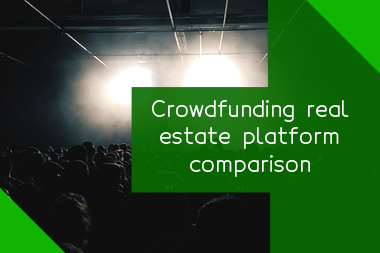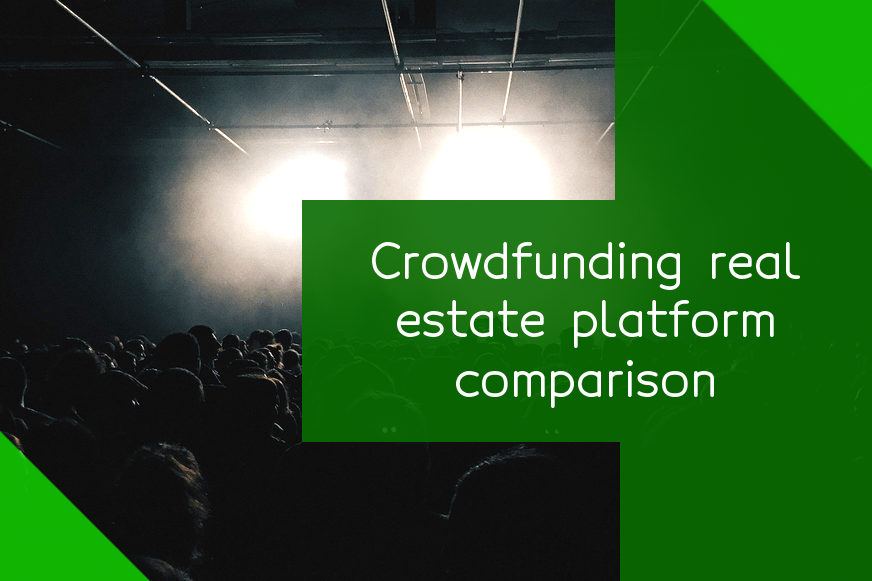I can provide you with some information about both Groundfloor and Fundrise.
Groundfloor and Fundrise offer different types of real estate investment opportunities. Groundfloor is a crowdfunding platform that allows investors to invest in short-term, high-yield real estate loans while Fundrise offers a range of investment products, including eREITs and eFunds, which invest in a diverse range of income-producing real estate properties.
Groundfloor may be better for investors looking for short-term investments with a high return on investment, while Fundrise may be better for those interested in long-term investments in a diversified portfolio of real estate properties.
Both platforms have their strengths and weaknesses, and investors should carefully evaluate their own investment goals and risk tolerance before deciding which platform to invest with.
Groundfloor Vs. Fundrise: A Quick Glance
Groundfloor and Fundrise are both real estate crowdfunding platforms, but they have different business models and target audiences.
Groundfloor is a platform for short-term, high-yield real estate loans. They offer loans to developers and rehabbers looking for quick financing for their projects. Groundfloor investors can invest in these loans and earn returns typically ranging from 6% to 14%, depending on the project and the associated risks. Groundfloor primarily targets accredited investors who are looking for higher returns, but they also offer investment opportunities to non-accredited investors.
Fundrise, on the other hand, is an online real estate investment platform that allows investors to invest in private real estate deals. Fundrise invests in a diversified portfolio of commercial and residential properties across the United States. Fundrise targets individual investors looking to invest in real estate for the long-term, with minimum investments of $500. Fundrise typically generates returns around 8% to 12% annually, with a lower risk profile compared to Groundfloor due to the longer-term investment horizon and the more diversified portfolio.
In summary, Groundfloor focuses on debt investments in single projects, with higher yield, shorter term and higher risk, while Fundrise focuses on equity investments in diversified portfolios, with more moderate return, longer term and lower risk.
What is Groundfloor?
Groundfloor is a real estate crowdfunding platform that allows individuals to invest as little as $10 in real estate development projects. It provides a way for investors to earn high yields on their investments while also supporting real estate developers and small businesses. Groundfloor also offers loans to developers who might have difficulty obtaining traditional financing, allowing them to complete their projects and contribute to local economic growth. Investors have the potential to earn returns up to 14% annually, and Groundfloor has facilitated over $300 million in loans since its founding in 2013.
What is Fundrise?
Fundrise is an online real estate investment platform that allows individuals to invest in private real estate assets. It uses a crowdfunding model to pool investments from many individuals and then invests the funds in a diversified portfolio of real estate projects. The platform offers a range of investment options, including eREITs (electronic Real Estate Investment Trusts) and eFunds (electronic Funds), which provide exposure to different types of real estate assets and investment strategies. Fundrise aims to make investing in real estate more accessible to a broader range of investors and provide opportunities for diversification and potentially higher returns compared to traditional real estate investments.
Pros and Cons of Groundfloor
Here are some general pros and cons of Groundfloor:
Pros:
- 1. High potential returns: Groundfloor offers high potential returns to investors due to its low investment minimums and exposure to real estate.
- 2. Accessible: Groundfloor is accessible to everyone, including non-accredited investors. This means anyone can invest in real estate and potentially earn high returns.
- 3. Diversification: Groundfloor enables investors to diversify their portfolio and minimize investment risks by investing in various real estate projects.
- 4. Transparency: Groundfloor offers investors a high level of transparency in the investment process, including details about the project and borrower.
Cons:
- 1High risk: Groundfloor investments are considered high risk due to their exposure to the volatile real estate market.
- 2Lack of liquidity: Groundfloor investments are illiquid, meaning they cannot be sold until the project is completed and sold. This means investors cannot get their money back until the project is completed and sold.
- 3Limited investment options: Groundfloor only offers real estate investments, limiting investors' ability to invest in other alternatives.
- 4Limited regulation: Groundfloor is not fully regulated by the SEC, which increases the risk of fraud and scam projects.
- 1Diversification: Fundrise offers a diversified portfolio of real estate investments, which can help mitigate risk and provide stable returns.
- 2Low minimum investment: It's relatively low minimum investment of $500 makes it accessible to many investors who might not have the resources to invest in physical real estate properties.
- 3Passive income: Fundrise provides a source of passive income, with regular dividends paid to investors.
- 4Transparency: all investment details, property details, and fees are clearly laid out in the platform.
- 1Lack of liquidity: Fundrise shares are not publicly traded, so investors face a lack of liquidity and may have to hold onto their investment for several years.
- 2Fees: Fundrise charges fees that can average around 0.85-0.95% annually - which can be higher than some other real estate investments.
- 3Market cycle risk: Fundrise invests in real estate, which is affected by both economic and market cycles. This can lead to volatility and uncertainty in terms of returns.
- 4Limited control: investors in Fundrise have limited control over how their investments are managed. The fund's management decisions are made by the company's leaders, leaving investors little say in how their funds are used or managed.
Pros and Cons of Fundrise
Fundrise is an online real estate investment platform that allows investors to buy and sell shares in a portfolio of private, commercial real estate properties. Here are some pros and cons to consider:
Pros:
Cons:
To summarize, Fundrise can be an attractive investment opportunity for those looking for passive income or diversification in their portfolio. However, its critical to consider the risks and limitations that come with any investment, Including lack of liquidity, fees, market volatility, and limited control.
Just one more thing: if you liked the article, please like us on social media and share this article with friends.



